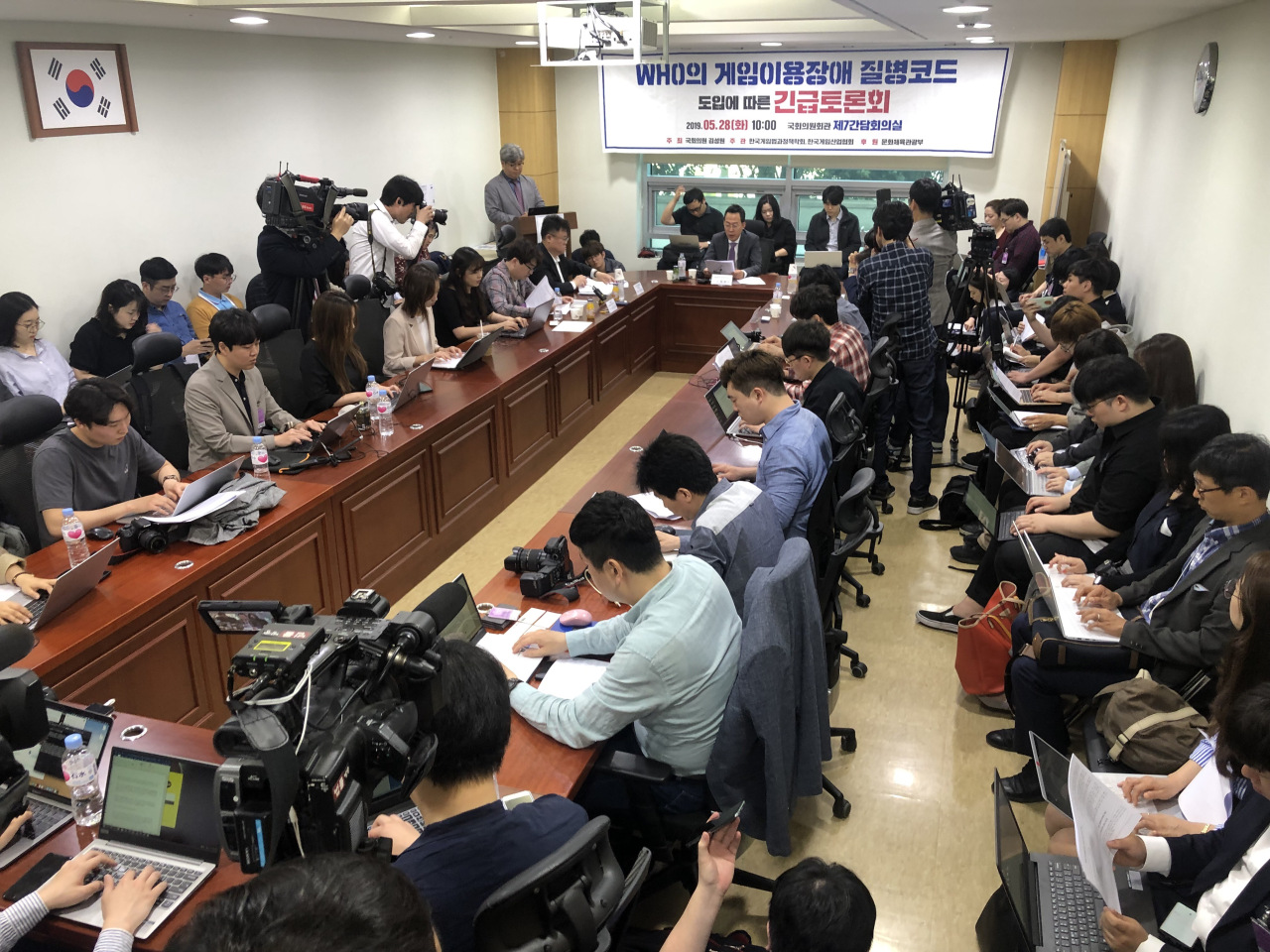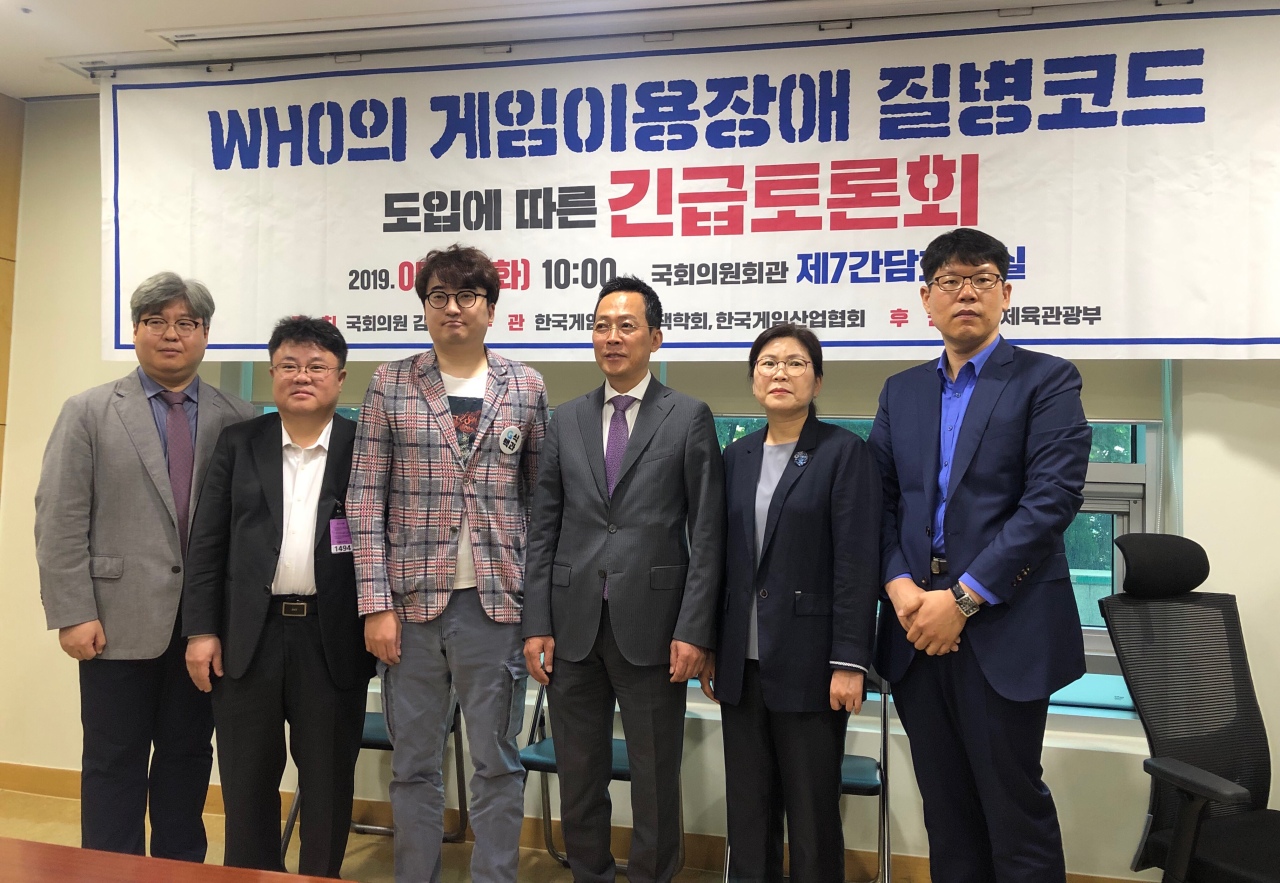Prime minister promises ‘soft landing’ for gaming disorder in Korea
Revision to ‘Korea Classification of Disease’ needs social consensus until effective application in 2026
By Lim Jeong-yeoPublished : May 28, 2019 - 15:00
The Office for Government Policy Coordination under the prime minister said Tuesday that it will form a consultative group to help respond to the World Health Organization’s adoption of game addiction as an official disease.
The announcement follows discord between the Culture Ministry, which opposes the WHO decision, and the Welfare Ministry, which stands by it.
“Through this consultative group we will minimize the concerns from game industry and seek reasonable ways to settle a healthy gaming culture,” the Prime minister’s secretariat said, “We will continue to build support for game industry, which serves a core content-creating role.”
The WHO’s decision Saturday to classify problem gaming as a disorder has brought forth fierce opposition from Korean gaming industry and academia. Headed by Culture Ministry, they directly clashed with opinions from the Welfare Ministry and parents’ associations.
The announcement follows discord between the Culture Ministry, which opposes the WHO decision, and the Welfare Ministry, which stands by it.
“Through this consultative group we will minimize the concerns from game industry and seek reasonable ways to settle a healthy gaming culture,” the Prime minister’s secretariat said, “We will continue to build support for game industry, which serves a core content-creating role.”
The WHO’s decision Saturday to classify problem gaming as a disorder has brought forth fierce opposition from Korean gaming industry and academia. Headed by Culture Ministry, they directly clashed with opinions from the Welfare Ministry and parents’ associations.

An emergency panel convened by Culture Ministry Tuesday at the National Assembly in Seoul argued that the WHO decision lacks scientific grounds, violates a person’s rights to cultural freedom and threatens to crush a technology-driven industry sector.
“We regret that our Ministry of Welfare joined the WHO meeting as our country representative and agreed with making gaming addiction a disease,” said Kang Kyong-seog, the general director of Korea Creative Content Agency’s Game Division
“Children’s over-dependence on games may stem from various external factors such as difficulties at home or school, not the other way around,” said Konkuk University Chungju Hospital’s psychologist Jun Young-soon, who also treats teenage patients at the Game Culture Foundation’s game indulgence clinics.
“Games are cultural content that is closer to movies and TV dramas and less like narcotics,” said Korea Association of Game Industry (K-games)’s Policy Director Choi Seung-woo, “Similar to sugar and salt, too much gaming can be harmful but that is a matter of moderation, not clinical treatment.”

The panel expressed concerns that the ICD-11 may have a labeling effect on the gaming industry that may cripple innovation in virtual reality, augmented reality, artificial intelligence and big data analysis. The panel conveyed the Ministry of Culture’s desire to actively participate in all decision-making processes related to the KCD revision, based on its continued objection to the WHO decision.
While the unanimously passed 11th revision to WHO’s International Classification of Diseases (ICD-11) is theoretically effective from January 2022 at 194 member states, the task remains for each country to draw their own domestic policies to prevent and tackle gaming disorder.
In South Korea‘s case, this involves consensus from relevant governing bodies and associations and a revision to the national statistics body’s Korea Classification of Diseases. As the KCD is revised every five years and the next revision is slated for 2025, the ICD-11’s actual domestic application is anticipated to be in 2026.
The WHO convened the 72nd annual meeting of its decision making body World Health Assembly between May 20 through Tuesday. On Saturday, the 194 members of the WHO reached a unanimous agreement to adopt ICD-11 which includes classification of game addiction as an official disease that requires medical attention.
By Lim Jeong-yeo (kaylalim@heraldcorp.com)








![[Graphic News] More Koreans say they plan long-distance trips this year](http://res.heraldm.com/phpwas/restmb_idxmake.php?idx=644&simg=/content/image/2024/04/17/20240417050828_0.gif&u=)
![[KH Explains] Hyundai's full hybrid edge to pay off amid slow transition to pure EVs](http://res.heraldm.com/phpwas/restmb_idxmake.php?idx=644&simg=/content/image/2024/04/18/20240418050645_0.jpg&u=20240419100350)





![[From the Scene] Monks, Buddhists hail return of remains of Buddhas](http://res.heraldm.com/phpwas/restmb_idxmake.php?idx=652&simg=/content/image/2024/04/19/20240419050617_0.jpg&u=20240419175937)

![[KH Explains] Hyundai's full hybrid edge to pay off amid slow transition to pure EVs](http://res.heraldm.com/phpwas/restmb_idxmake.php?idx=652&simg=/content/image/2024/04/18/20240418050645_0.jpg&u=20240419100350)

![[Today’s K-pop] Illit drops debut single remix](http://res.heraldm.com/phpwas/restmb_idxmake.php?idx=642&simg=/content/image/2024/04/19/20240419050612_0.jpg&u=)